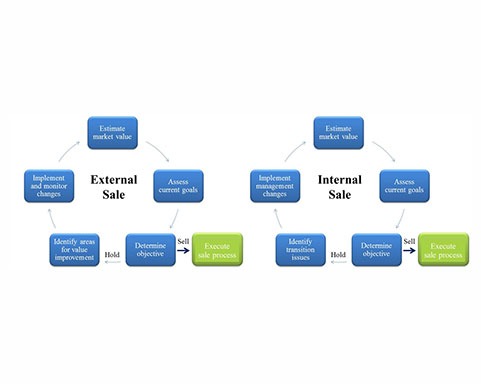
Perpetuating your agency or brokerage: How much time should you expect?
With the recession of 2008 slowly fading from memory and most agencies on the pathway of revenue growth, many principals in the 55+ age group are again thinking about working a perpetuation plan. Just within the last few months, I have had a number of conversations with owners about timing an exit, so I thought that I might dialogue this topic for a broader audience.
For the average retail personal lines agency, the owner’s exit is typically a simple one since the ownership transitional period can be relatively short from as little as a few weeks. For many other types of agencies and brokerages though, the owner’s exit can be a much longer period of time due to factors such as account sizes, relationship management, and market expertise. Most sale transactions of brokerages serving commercial clients, and those being transferred internally, involve a 2-5 year transitional period. Often a significant portion of the sale price is contingent upon performance of the business during this transition period; therefore, to maximize the value in a sale it is important to time an exit such that 1) the business is on an upward trend and 2) the owner is fully engaged in the business.
Any agency principal that postponed selling during the economic boom of the mid-2000s learned that timing plays a critical factor. I know of many that were of retirement age that waited just a little too long and ended up losing 30-40% of the value of the business due to a decline during the recession. As I’ve noted in other posts here, insurance agency revenues are on the rebound from the lows a few years ago and the overall confidence in the marketplace by buyers is significantly higher. If you have been holding off, now is very good time to begin your exit for these reasons.
 We have also had clients that waited to sell until they were burned out on the business or had major health issues arise. This can lead to a significant decline in value if the owner is intimately connected with the marketing, sales or underwriting. In one case, a client let us begin marketing his business for sale and then went into “retirement mode” only to see his revenue drop 10% in six months, which then required us to pull the business off the market so that he could get it back on track. While the agency’s performance in the past is important, the performance during the trailing twelve months prior to the closing is the most important factor and the twelve months following the closing is usually the second most important factor. For this reason, it is crucial that the owner be fully engaged in the business until they have received the last contingent payment from the buyer.
We have also had clients that waited to sell until they were burned out on the business or had major health issues arise. This can lead to a significant decline in value if the owner is intimately connected with the marketing, sales or underwriting. In one case, a client let us begin marketing his business for sale and then went into “retirement mode” only to see his revenue drop 10% in six months, which then required us to pull the business off the market so that he could get it back on track. While the agency’s performance in the past is important, the performance during the trailing twelve months prior to the closing is the most important factor and the twelve months following the closing is usually the second most important factor. For this reason, it is crucial that the owner be fully engaged in the business until they have received the last contingent payment from the buyer.
Whether you are thinking of selling the business internally or externally, the bottom line is that you must start with the end in mind and back into when you need to begin the process. If your agency serves commercial clients, such as commercial P&C or group benefits insurance, and you would like to retire or work limited hours within five years, then now is the time to start working that plan. The same is true if you plan on selling the business internally. The plan starts with a third party evaluation of your agency to ascertain what steps might be done in the short term to enhance the value and prepare the business for your departure. From there, you discuss your goals with your advisors and work out the exit strategy. Understanding this process is of critical importance to maximizing your return from the sale and improving the long term success of the business.
Experts in Insurance Distribution Business Valuation, Sale, and Acquisition
We deliver superior results through our industry expertise, transaction expertise, and professional network.
Contact us



